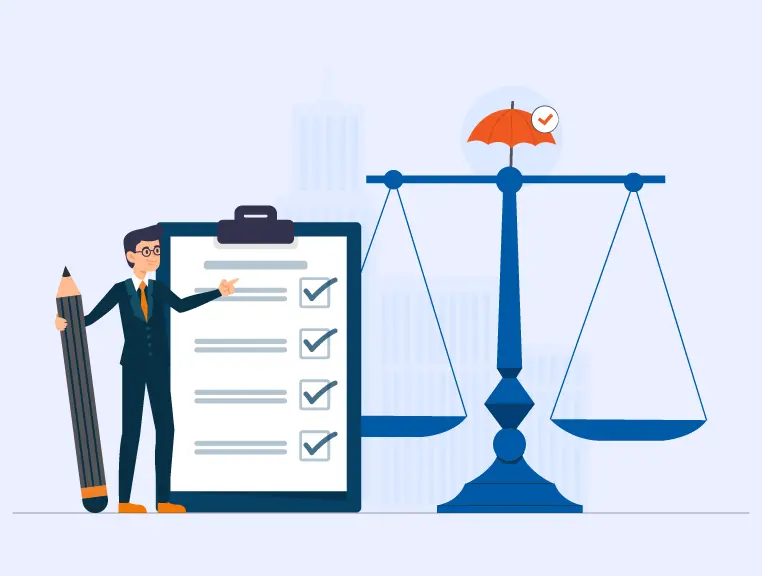Insurers cover various supplementary expenses under commercial general liability insurance. These charges, however, may vary according to different insurance policy providers.
Following are some of the supplementary expenses commonly covered by Commercial General Liability Insurance:
Claim Adjustment Expenses
Claim adjustment expenses, as the name suggests, are the expenses incurred in the settling of insurance claims. These expenses may include legal and other fees and the portion of general expenses allocated to claim settlement costs. The insurance company is obligated to defend the insured. The defending expenses can be high. These expenses include legal fees, investigations, expert witnesses, and court costs.
Court Costs
The insured may be required to pay court costs as part of the judgment when he is on the losing end of a suit. Such costs are covered by the insurance company as this supplementary coverage expenses.
In some cases, the insured is required to pay the attorney fees of the opposing party. These costs are not included as supplementary expenses and hence will not be paid by the insurance company. Such charges are covered as a part of the liability coverage and are subject to the limit of liability. It is essential to know that supplementary expenses do not include attorneys’ fees or attorneys’ expenses taxed against the insured.
Read More: What is a Commercial General Liability Insurance?
Post-Judgment Interest
Often interest is applied to the original claim amount by the court to adjust for the delay. This is called Post-Judgement Interest, and the insurance company may pay this interest in addition to the policy limit in a general liability insurance policy.
The insurer may pay the interest on the entire judgment, even if that portion is in excess of policy limits.
Other Reasonable Expenses
When the insured participates in the defense of the claim, the insurance company pays all direct expenses incurred. Reasonable expenses are the expenses incurred by the insured when the insured is requested by the insurance company:
- To assist them in the investigation of the claim
- To assist them in the defense of the claim or the suit
What is not Covered by Supplementary Expenses?
It is essential to understand that the supplementary expenses do not cover any fine or penalty. The most expensive the insurance company can cover may be the fixed expense as set forth in the Limits of Insurance section of the insurance policy.
Read More: Who is an Insured under Commercial General Liability Insurance?
Case 1 on Supplementary Expenses in Commercial General Liability Insurance
The R.K. construction company was in the housing and construction business for the last decade. It had recently completed a residential property project, and the flats were ready for possession within a month. Heavy marketing activities helped them to get customers to visit their site and see the property.
Mr. Agarwal was interested in buying a flat for his son. He visited the project site along with his wife. During their visit, Mr. Agarwal’s wife slipped through the wet cemented floor in one of the flats and broke her wrist. Mr. Agarwal filed a case against R.K constructions for the same.
The construction company had insured itself with a commercial general liability insurance policy from a well-known insurance company. The insurance policy helped the construction company to pay the medical bills of Mr. Agarwal’s wife. The policy also paid supplementary expenses like legal expenses.
Case 2 on Supplementary Expenses in Commercial General Liability Insurance
A chemical manufacturer accidentally flushed flammable liquids into a city’s sewer system. An explosion in the sewer resulted, and chaos spread in the affected area.
The city streets were torn up, and the utility services were suspended. Many other businesses in the vicinity of the explosion had to close because access to the neighborhood had been cut off. These businesses sustained a loss of use of that property. Although, the explosion did not directly damage the property of these businesses.
The chemical manufacturer’s commercial general liability coverage responded to the loss and the claims of direct physical injury. It also took care of supplementary charges like Claim adjustment expenses for the witnesses and the court charges.
About The Author
Rajesh Mehta
MBA Finance
Rajesh has become a distinguished expert in liability insurance with over 8 years of extensive experience in the insurance industry. As a dedicated writer for SecureNow, he crafts insightful and informative blogs and articles that help businesses and individuals understand the nuances of liability insurance, from policy details to industry trends. Throughout his career, Rajesh has developed a profound knowledge of various types of liability coverage, including professional, general, and product liability insurance. Their expertise enables them to break down complex topics into accessible content, making it easier for readers to make informed decisions about their insurance needs.




